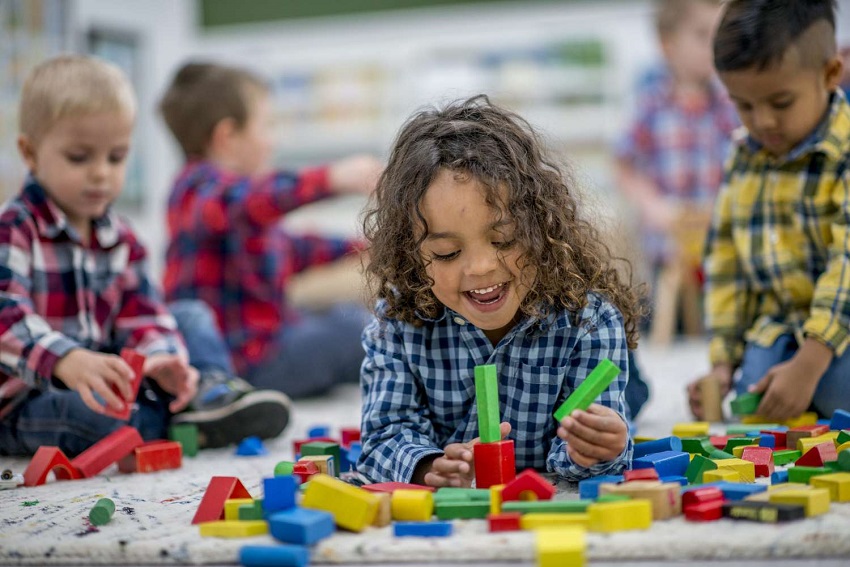If you’re a parent, you know how important early childhood education is for your little ones. Preschool plays a significant role in their development and sets the foundation for their future learning journey. But have you ever wondered how many weeks is playing preschool? Let’s dive into this topic and explore the benefits of preschool education, the ideal duration for preschool, and why it matters in the long run. This content is presented by Prforeducators.com
What Makes Preschool So Special?
Preschool is not just about playtime; it’s a crucial stage in a child’s life where they start to develop essential skills that will stay with them for years to come. Here are some of the key benefits of preschool education:
1. Social and Emotional Development
Preschool provides an excellent opportunity for children to interact with their peers and learn valuable social skills. They begin to understand how to share, take turns, and express their emotions in a healthy way. These early social interactions lay the groundwork for building meaningful relationships later in life. Find out how many hours is preschool.
2. Cognitive Skills
At preschool, kids engage in various activities that stimulate their cognitive development. They learn problem-solving, critical thinking, and decision-making skills through play-based learning. This fosters creativity and curiosity, making them eager learners as they progress through their academic journey.
3. Language and Communication
Preschool offers an environment where language development is encouraged and nurtured. Kids engage in conversations, storytelling, and reading activities that improve their vocabulary and communication skills. A strong language foundation sets them up for success in reading and writing later on.
4. Motor Skills
Physical activities at preschool help children develop their fine and gross motor skills. From holding crayons and scissors to running and climbing, these activities enhance their motor coordination and dexterity.
5. Independence and Self-Confidence
Preschool allows children to explore and make choices independently, fostering a sense of self-confidence and autonomy. They learn to solve everyday challenges and gain a sense of accomplishment, boosting their self-esteem.
How Long Should Preschool Last?
The duration of preschool varies depending on individual preferences, educational systems, and cultural norms. In many countries, preschool typically lasts for two to three years before children enter kindergarten. However, some parents may choose to enroll their children for shorter or longer durations based on their specific needs.
Factors to Consider When Deciding Preschool Duration
- Age of the Child: Starting preschool at a younger age can have numerous advantages, as children tend to be more receptive to learning and adapt quickly to new environments.
- Child’s Readiness: Some children may require more time to adjust to the preschool setting, and starting with a shorter duration can be beneficial.
- Educational Goals: Consider the educational objectives you have for your child and how preschool aligns with those goals.
- Socialization and Interaction: Preschool helps children develop social skills, so longer durations can provide more opportunities for peer interactions.
- Parental Work Schedule: Your work schedule and commitments may influence the duration of preschool you choose for your child.
The Power of Play in Preschool
Play is an integral part of preschool education. It might seem like children are just having fun, but play serves a critical purpose in their development. It is through play that children learn, explore, and make sense of the world around them. Play-based learning is highly effective because it engages children in a way that is enjoyable and meaningful to them.
Types of Play in Preschool
- Imaginative Play: Children engage in pretend play, taking on different roles and scenarios. This helps them develop creativity and problem-solving skills.
- Constructive Play: Building with blocks, puzzles, and other manipulative toys enhances cognitive skills and spatial awareness.
- Physical Play: Running, jumping, and playing games not only promote physical health but also improve motor skills and coordination.
- Social Play: Interacting with peers during games and activities fosters social skills and cooperation.
- Exploratory Play: Children explore their environment, stimulating their curiosity and sense of wonder.
Creating a Positive Preschool Experience
As a parent or caregiver, there are several ways you can contribute to making your child’s preschool experience positive and enriching:
1. Communicate with Teachers
Maintain open communication with your child’s teachers to stay informed about their progress and any areas where additional support might be needed.
2. Participate in School Activities
Get involved in school activities and events. This involvement shows your child that you value their education and are interested in their experiences at preschool.
3. Establish a Routine
A consistent daily routine can provide a sense of stability and security for your child, helping them adjust to the preschool environment more easily.
4. Encourage Learning at Home
Support your child’s learning journey by engaging in educational activities at home, such as reading together, playing educational games, and exploring nature.
Preschool’s Long-Term Impact
Investing in a quality preschool education can yield significant long-term benefits for your child. Studies have shown that children who attend high-quality preschool programs tend to perform better academically, have higher graduation rates, and exhibit better social and emotional well-being.
Closing Thoughts
Preschool plays a vital role in shaping a child’s future. The benefits of early childhood education are undeniable, from fostering social and emotional development to enhancing cognitive and motor skills. The ideal duration of preschool varies based on individual circumstances, but what remains constant is the power of play-based learning in nurturing young minds.


